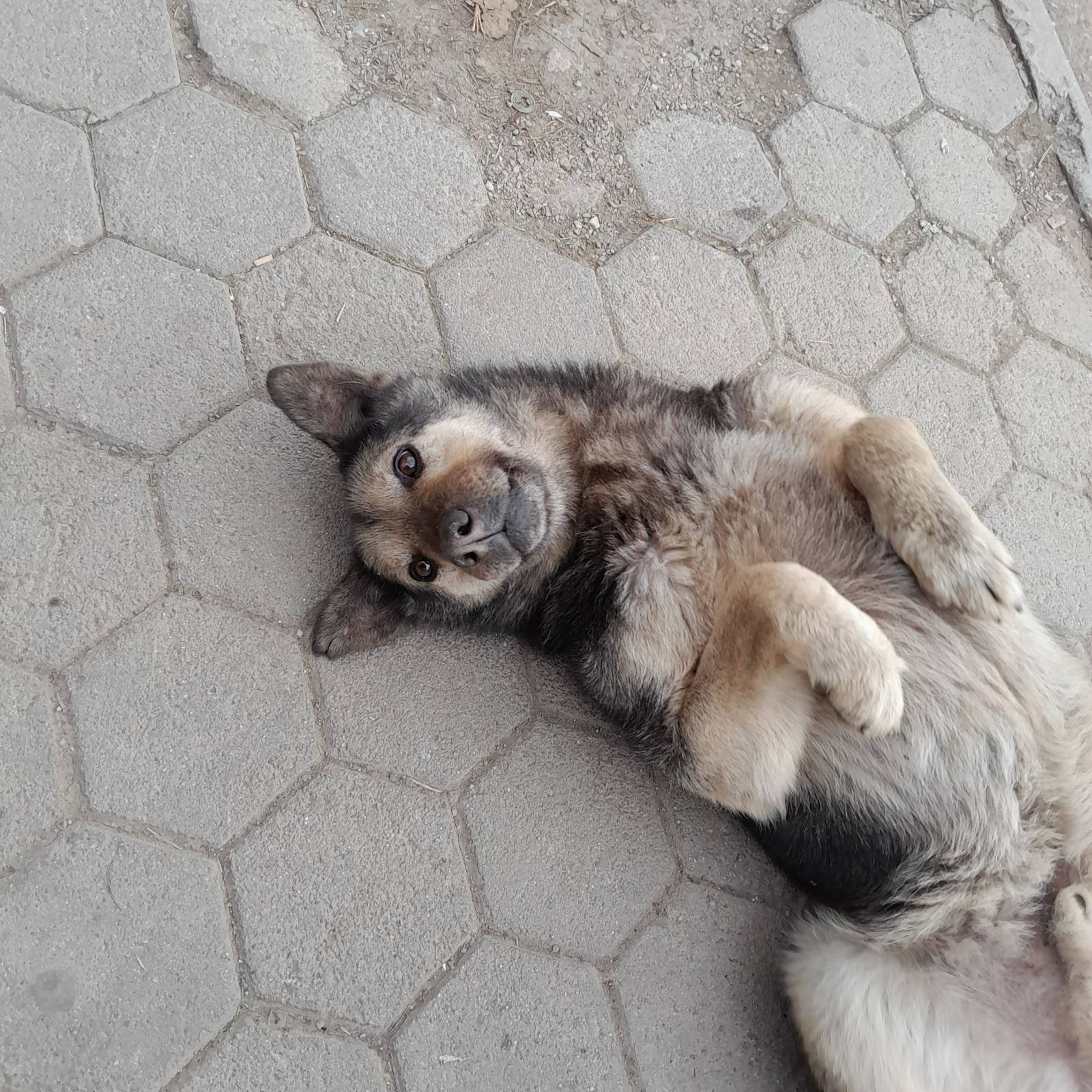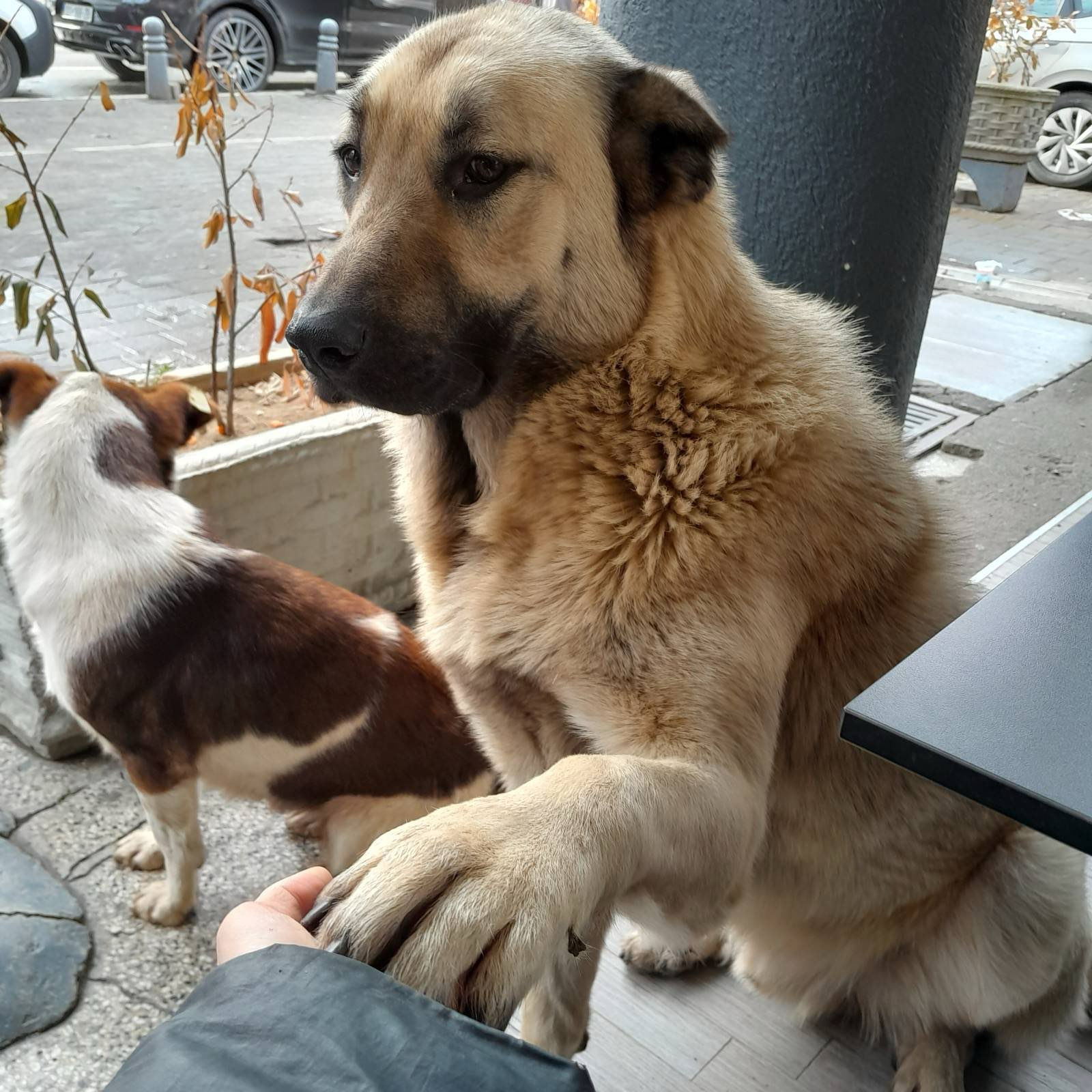Lojnat e empatisë
Pathetic can be traced back further to the Greek pathētikos, meaning “capable of feeling.” It was preceded, slightly, by the related pathetical (which has the same meaning as the early senses of pathetic, but seem to have fallen out of use before taking on the “absurd” or “inadequate” ones) and pathetically.

You’d think that if it comes to the point that a human being has the capacity to be so rational even on the timing of death of another being (one which is not human [only in this case]), on how we have had the capabilities to breed, re -breed and brand breeds to our own needs, on how we have the capacity to distinguish on what is humane and not, and so and so…
Forever and ever I have been searching for a rational answer on why we do NOT have the capability to coexist with animals (stray dogs) in an urban area (Prishtina)
It's a biased opinion in a biased world. The only thing that is unbiased (coming from my own bias) is the phenomena of anthropomorphizing everything, like a pandemic. We translate human morals which are very feeble into the actions of animals. WE are part of the problem - No, actually, we ARE the problem.
It seems that if we feel we have to teach basic respect to kids in an institutionalized manner, then we also have to teach them what is something you do NOT do in the street. Examples of things one shouldn't do are: spitting, throwing trash, hitting people and other stuff. Though, when it comes to violence, no one ever teaches you at school on how you should behave towards the stray dogs. It is a prevalent social problem which highlights the main issues of our political power and system. There is a neuter program taking place, but that program has been misused as veterinarians found a way to get more money by bureaucratically making it seem as if they’re doing their job of keeping track of all the dogs they have sterilized.
The most bizarre thing is the fact that its so difficult for certain people to understand the consequences of their actions. Sure, there are different ways in which humans communicate and different ways on how specific animals communicate. Though, there are some things that are always almost linear, binary - there is rarely ever a gray area.
If you hit a human or you throw them with rocks. Most of them will fight you back. But the logical fallacy, the rationale fail, the irrationale fiesta happens if you violate a dog in any way (kick, throw things, throw hot water, throw fireworks or firecrackers at them, poison etc) and they fight you back and bite you (if they are not dead or seriously injured). Is the dog the one blamed? Why do they get blamed? Is it because we can not rationalize outside of our own species? Is it because we can so easily get mauled by a pack of dogs and physically we can not do much if fear overcomes us? Is it the fear that humans are so weak and fragile compared to animals that we cannot fathom how they do not behave on the same moral compass as most humans do? If a dog chases a kid, the dog is again at fault in this way of thinking. The dog should’ve known it's a kid, and kids can make mistakes, but if you ever say a kid is harming a dog?
Again. you’re the one on the wrong. Because how can a kid be harming an animal that can leave them traumatized for life in one bite?
If I start to count and narrate every situation in which I have been in regarding the stray dogs this would be a very long text. This text comes in from all the frustrations gathered into me because of the injustice and apathy and hate and bitterness I have felt from other people. There is no right
solution to this problem as it is a completely complex social problem that is managed in a completely binary approach. Some people love them without a fault and some people hate them without a fault. I have seen dogs whose penis’ have been cut off, I have seen puppies dying on the street out of neglect and apathy, dogs with severe injuries left to die in the middle of a street, I have buried dogs which have been poisoned just because they were a nuisance to a random man of a random neighborhood who has decided that the best way to deal with his own problem is to trick a dog with poisoned food. Yesterday, I heard someone describe co-existence as the sharing of common space and matter. It is always so paradoxical when something seems so complex but the complexity comes from its simple minded linear concept. We have always co-existed with animals, we have always been here and there surrounded by them. But in an urban environment in a country still trying to develop and uphold European standards ™ where they don’t even fit or apply to the context, it is simply beautiful how ignorant we are to coexisting with the strays of Prishtina.
Anthropomorphizing is not the enemy. The enemy is the wrongful place in which hate is directed. In order to try and inspire even a tiny bit of that change, I will keep sharing stories of dogs I have managed to co-exist with on the super asphalted gray streets of Prishtina. It is my own [pathetic] attempt at changing a narrative which hopefully will make people understand that the strays have feelings, and loves, and girlfriends, and break ups sometimes. If we want to keep up holding them to human morals and standards we can also talk about their stories from an anthropocentric view. The only thing we have to keep in mind collectively is that systematic violation of the other makes the other bite you back.



